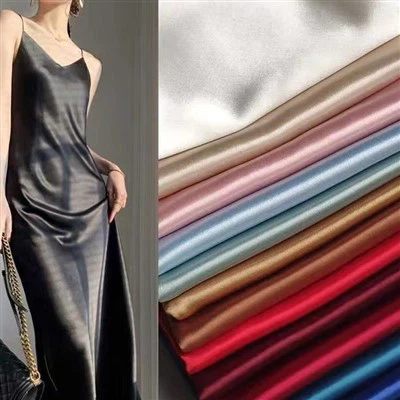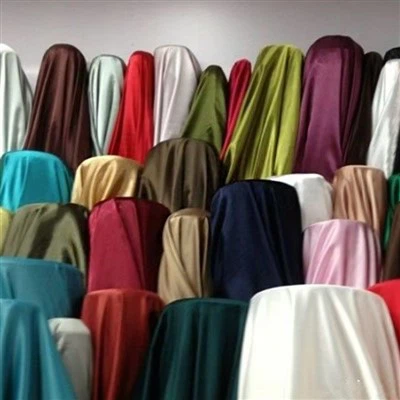Hey there! As a supplier of polyester microfiber fabric, I've been getting a ton of questions lately about its filtration properties when used in face masks. So, I thought I'd take some time to break it down for you all.
First off, let's talk about what polyester microfiber fabric actually is. Polyester microfiber is a synthetic material made from extremely fine fibers. These fibers are so small that they can create a very dense and tight-knit fabric. This density is what gives polyester microfiber its unique properties, including its potential for filtration.
One of the key factors in determining a fabric's filtration ability is its pore size. The smaller the pores in the fabric, the better it can trap particles. Polyester microfiber fabric typically has very small pores due to the fine nature of its fibers. This means it can effectively filter out a significant amount of airborne particles.
When it comes to face masks, there are different levels of filtration we need to consider. For general use, a mask that can filter out larger particles like dust, pollen, and some bacteria is usually sufficient. Polyester microfiber fabric does a great job in this regard. Its tight weave can catch these larger particles as air passes through the mask, preventing them from being inhaled.
But what about smaller particles, like viruses? Well, it's a bit more complicated. Viruses are incredibly tiny, and not all fabrics can filter them out effectively. However, some studies have shown that certain types of polyester microfiber fabric can provide a decent level of filtration against smaller particles. This is especially true when the fabric is combined with other layers or treatments to enhance its filtration capabilities.
For example, some polyester microfiber fabrics can be treated with electrostatic charges. These charges attract and hold onto particles, making the fabric even more effective at filtration. Additionally, layering the polyester microfiber with other materials, such as meltblown polypropylene, can further improve the mask's ability to filter out small particles, including viruses.
Another advantage of using polyester microfiber fabric in face masks is its durability. Unlike some natural fibers, polyester microfiber doesn't break down easily when exposed to moisture or repeated use. This means that masks made from this fabric can maintain their filtration properties over time, even with regular washing.


Now, let's take a look at some of the specific types of polyester microfiber fabric we offer. We have the Embossed Microfiber Polyester Fabric. This fabric has an embossed pattern that not only adds a unique look but also can enhance its filtration performance. The embossing can create additional surface area for particles to be trapped, improving the overall filtration efficiency.
Our Four Way Stretch Polyester Spandex Garment Fabric is another great option. The stretchy nature of this fabric makes it very comfortable to wear, and it can also conform well to the face, creating a better seal. A good seal is crucial for a mask's effectiveness, as it prevents air from leaking around the edges and ensures that all the air you breathe passes through the filtered fabric.
And then there's our Matt Satin Fabric. This fabric has a smooth and elegant finish, but don't let its looks deceive you. It also has excellent filtration properties. The tight weave of the satin structure helps to trap particles, making it a great choice for face masks.
So, if you're in the market for high-quality polyester microfiber fabric for your face mask production, you've come to the right place. Our fabrics are not only effective at filtration but also offer other benefits like durability and comfort. Whether you're a small business looking to make a few hundred masks or a large manufacturer with high-volume needs, we can provide you with the fabric you need.
We understand that each customer has unique requirements, and we're more than happy to work with you to find the perfect fabric solution for your face masks. Whether you need a specific level of filtration, a certain color or pattern, or a particular stretch or texture, we can customize our products to meet your needs.
If you're interested in learning more about our polyester microfiber fabric or would like to discuss a potential order, don't hesitate to get in touch. We're here to answer all your questions and help you make the best decision for your business.
In conclusion, polyester microfiber fabric has some great filtration properties that make it a viable option for face masks. Its ability to filter out larger particles, combined with the potential for enhanced filtration through treatments and layering, makes it a versatile choice for various applications. And with our wide range of fabric options, you're sure to find the perfect one for your needs. So, what are you waiting for? Contact us today and let's start working together!
References
- Various scientific studies on fabric filtration properties for face masks
- Industry reports on the use of polyester microfiber in protective gear






